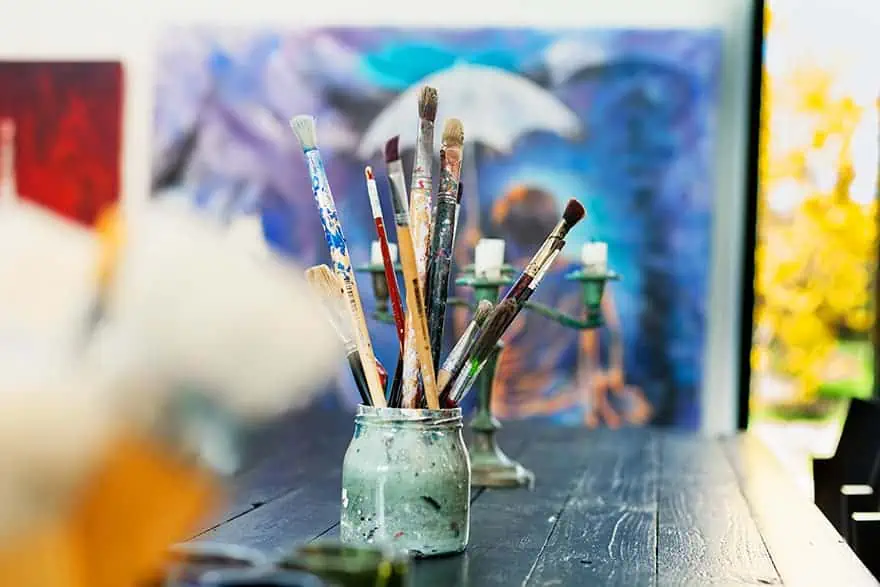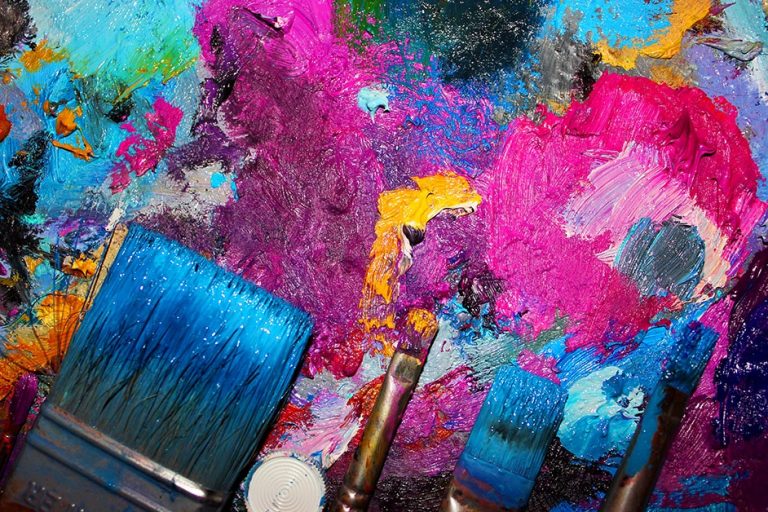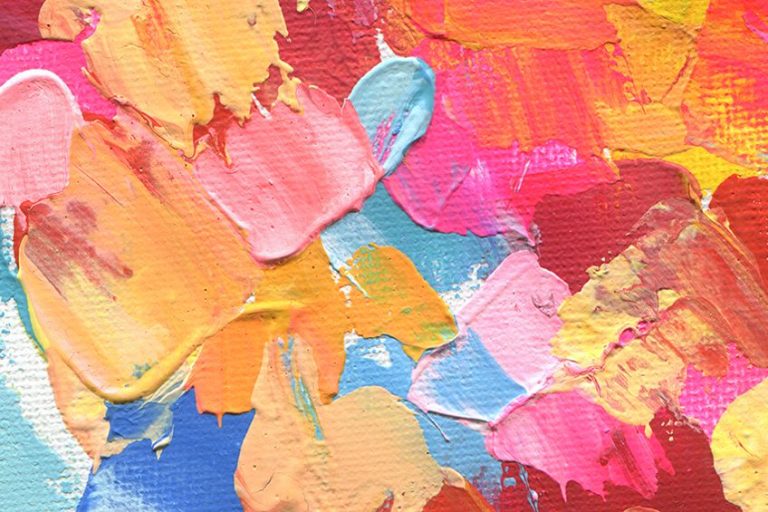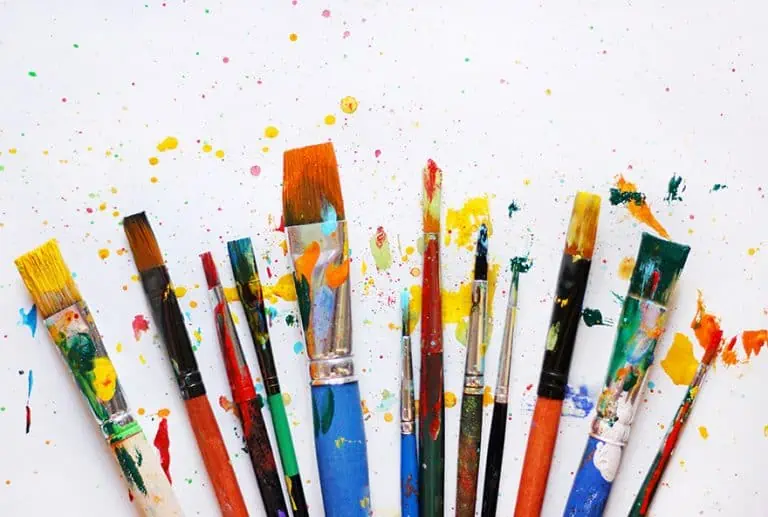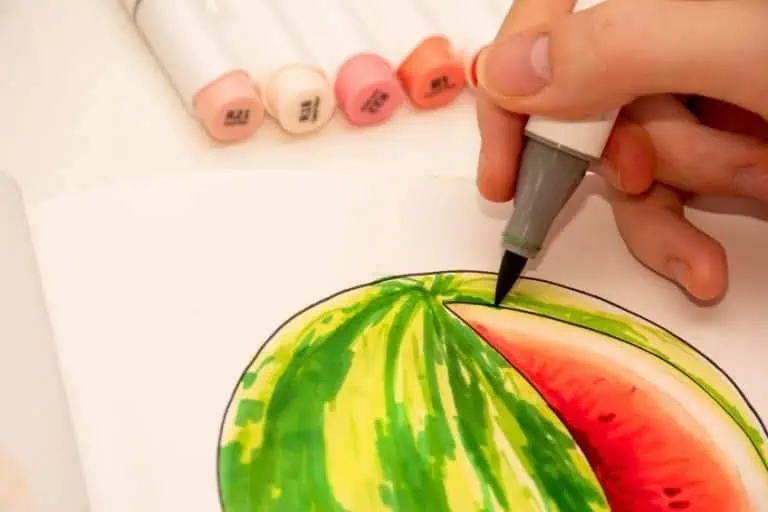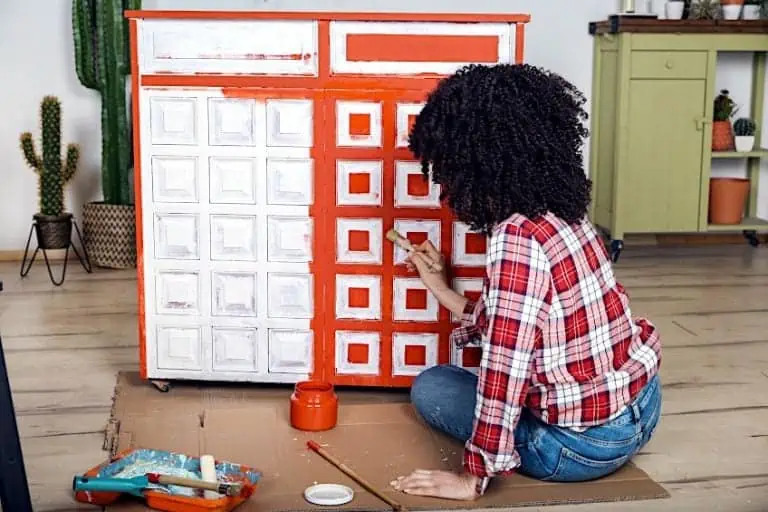How to Clean Oil Paint Brushes – Best Oil Brush Cleaner
This post may contain affiliate links. We may earn a small commission from purchases made through them, at no additional cost to you.
As many painters know, the best way to clean paint brushes is mainly based on the paint medium you are using. If you are using a watercolor or acrylic paint medium, then a simple rinse with soapy water and a wipe down of your brushes will be sufficient. Cleaning oil paint brushes is not as easy. Due to their oily base, these end up drying very hard and often require solvents or thinners to remove effectively from surfaces as well as your oil brushes. Leaving dry paint on your brushes for extended periods can lead to them being unusable and they will keep needing to be replaced. Below we will explore some great tips when it comes to the best way to clean paintbrushes.
Table of Contents
How to Clean Oil Paint Off Brushes
Some say you can use your dish detergent and some water to clean your oil brushes effectively if they are still wet when you do this. Although there are many conflicting reviews about this. Oil artists will tell you that using a dish soap can ruin your brushes in the long run and possibly change to the texture of the bristles too. Once the paint left on your brushes has been given time to dry, it is much harder to soften the paint within your bristles. Thus, only a spirit, alcohol or oil solvent will get the job done. Oil paints are also messy, therefore, using a chemical or alcohol-based remover will yield the best results. Although these can also be harsh on your brushes and other surfaces.

Some options of the best oil brush cleaners are turpentine, linseed oil, artist soap bars, safflower oil and walnut oil just to name a few. The oil options are a lot softer on your bristles and assist in protecting them for longer use. Some people also like to use brush washers and special cups or buckets that you can purchase to use for cleaning your brushes as well. One good example of this would be Paint Puck! Who stocks a silicone cleaning mug, other brands also come in stainless steel options. Although it is more of a personal preference and not completely necessary for those just starting out.
The Best Way to Clean Paint Brushes
This may seem like an easy thing to do, but there is a two-part process that will assist in longer-lasting brushes and easier clean-up. When you are done painting and would like to clean your brushes, it is important to first remove the outside layer of paint leftover on the bristles. Add your thinner or solvent to a container and mix your brushes in there to better loosen the paint bits. Now you can use an old towel or paper towel to gently wipe your tools and dry them. Sometimes it helps to then rinse your paintbrushes again, under some lukewarm water to let any excess oils run out. Dry them again when the water runs a little clearer.
The next step which not everyone knows to follow through with, assists in removing any remaining paint and oil residue. With oil paint you need to make sure to get to the layer that is stuck deep within your paint brush bristles. If they are left to dry, it will result in a stiff and unusable paintbrush. You will need to use your thinners again and dip the brushes in quickly to get them. After this, you will use an artist’s hand soap and gently rub your paintbrushes on the soap to remove the hidden paint. The soapy lather will reach the fine layers in between your bristles loosening hidden oil residue, which will be evident in colors appearing on your soap. Dry your paintbrushes afterward and store them neatly till next time!
Below we will discuss some great product recommendations for oil brush cleaners available online or at your local art shop.
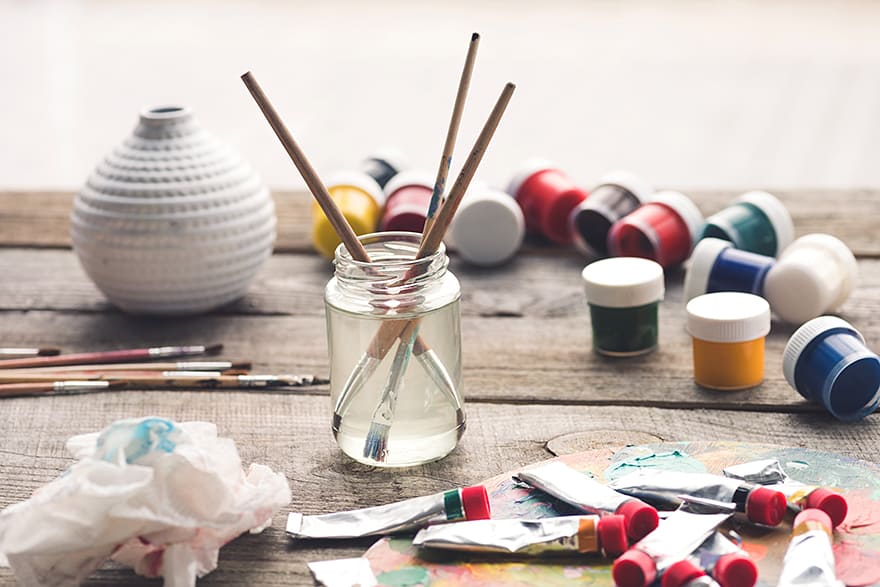
Natural Paint Brush Cleaners
Now that we know of some great product recommendations for oil brush cleaners, we can explore some natural alternatives too! Natural alternatives can be just as effective as harsh chemicals without being toxic to work with. These are usually items you would have around the home or that would be cheaper and easier to acquire. Alternatives include cleaning oil paint brushes with vinegar, baby oil and even citrus. Specifically, using citrus as a thinner is done by taking the oil from citrus fruit peels and using it with isoparaffin. While it may seem a little time-consuming, combined with the power of the citrus oils, this mix breaks down the oil and grease from your brushes and provides a fresh scent too that is non-toxic.
How to Clean Dried Paint Brushes
Already known for its versatile cleaning properties, it is no surprise that you can clean your oil paint brushes with white vinegar too. For oil paints that have been left a little longer between cleans, they start to harden and become brittle. Placing these in some warm white vinegar to soak for a while, will loosen those paint layers and not damage your brushes in the process. Cleaning oil paint brushes with vinegar is a super easy and pocket-friendly method when you are running low on artist supplies or strapped for cash.
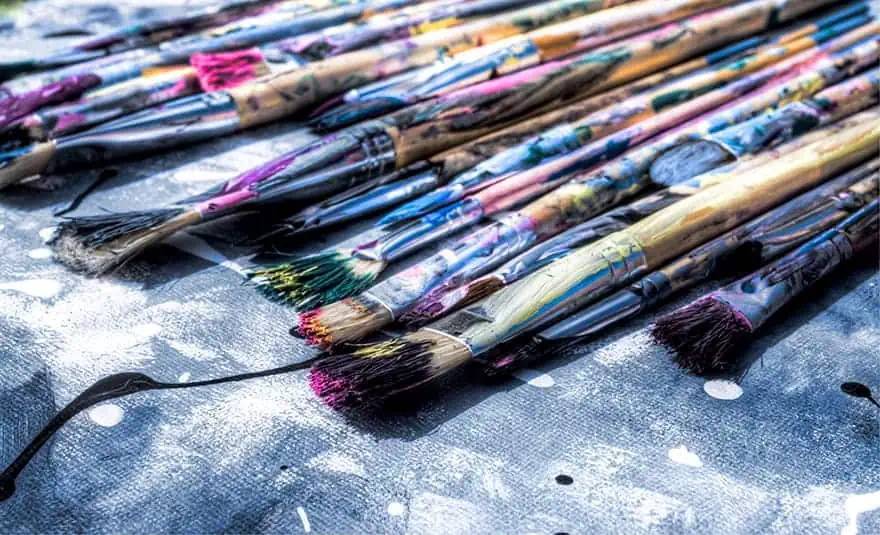
Cleaning Oil Paint Brushes with Vinegar
This method is fairly simple and should take under 45 minutes to complete. First, you want to pour your white vinegar into a pot, on low heat on your stove. Let it come to a slight simmer or boil, now you can leave your paintbrush in the white vinegar and come back in 20 minutes while it soaks. Once done, rinse your brushes with warm, soapy water and loosen any paint still stuck in the bristles with your fingers or a soft cloth to get them clean. Once your water is running clear you can leave your brushes to dry on a flat surface.
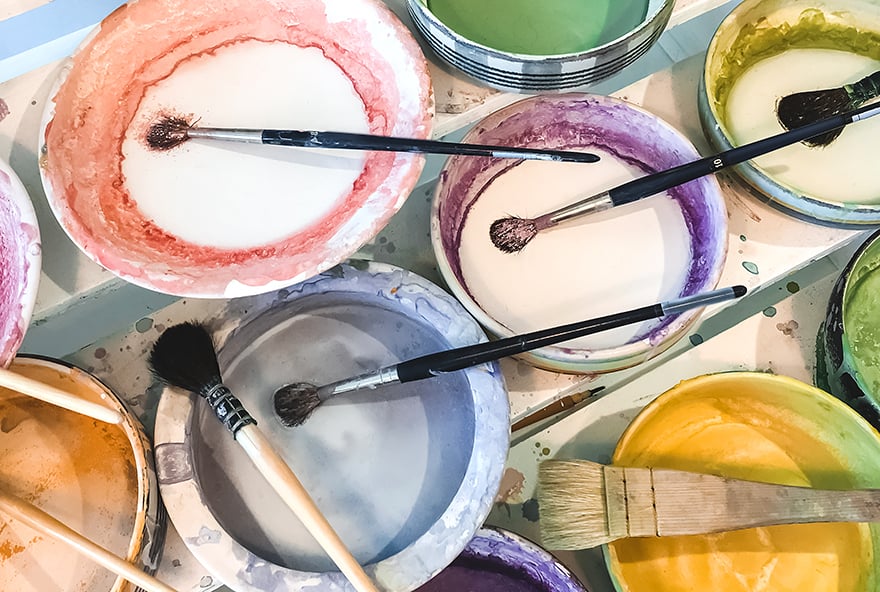
Reviving Old and Caked Brushes
Here is a nifty trick for those oil paint brushes that seem hard, and brittle. They may seem better off in the trash but this recommendation could just save them with only two household ingredients – fabric softener and hair gel! All you need to do is apply some of the gel onto your brush bristles and cover those completely. Then let them soak for a while in your fabric softener water. Gently wipe and dry them afterward. There you have it, brushes revived! Let us take a look at some natural oil brush cleaner recommendations on the market right now:
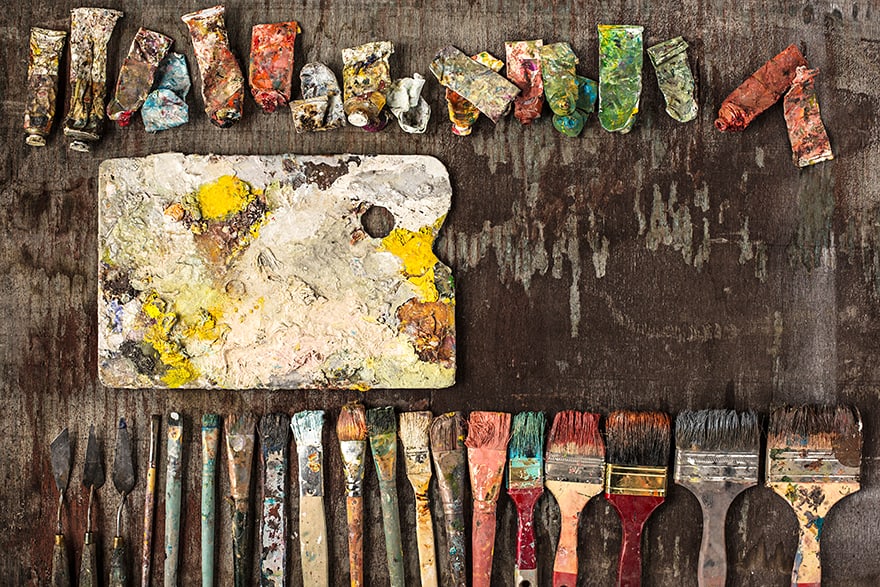
So there you have it. The best methods to clean oil paint brushes as well as the best product recommendations and natural alternatives. Now there are no more excuses for dirty brushes!

Frequently Asked Questions
How to Clean Oil Paint Off Brushes?
Oil paint can be cleaned using various different mediums. The best way to ensure your oil brushes are clean and will last longer is to clean them while painting and then again afterward in order to avoid drying the paint. You can do this by using spirits, thinners or natural oils. The oils will assist not only with your brush texture and quality but will also be helpful in creating smooth and glossy works of art.
How to Clean Dried Paint Brushes?
The best way to clean dried paintbrushes is by using a heated pot of white vinegar. This will loosen the paint stuck deep within your bristles and will also protect and soften them. Much like when using white vinegar on your hair, it will restore the PH balance of those fine bristle hairs and keep your brushes restored and looking brand new. This is also a safe and natural household ingredient that is cheap, easy to acquire and not harmful to your painting tools.
What’s the best Way to Clean Paint Brushes?
This will often depend on the paint medium you are using. While watercolors and acrylics are easily washed off using some soapy water, using dish soap on oil brushes can cause damage. The soap will affect your bristles making them much harder for future use. In order to keep them soft, oils and artist soaps are the best methods. These often contain rich natural oils that will nourish and protect your brushes for years to come.
In 2005, Charlene completed her wellness degrees in therapeutic aromatherapy and reflexology at the International School of Reflexology and Meridian Therapy. She worked for a company offering corporate wellness programs for several years before opening her own therapy practice. In 2015, she was asked by a digital marketer friend to join her company as a content creator, and it was here that she discovered her enthusiasm for writing. Since entering the world of content creation, she has gained a lot of experience over the years writing about various topics such as beauty, health, wellness, travel, crafting, and much more. Due to various circumstances, she had to give up her therapy practice and now works as a freelance writer. Since she is a very creative person and as a balance to writing likes to be active in various areas of art and crafts, the activity at acrylgiessen.com is perfect for her to contribute their knowledge and experience in various creative topics.
Learn more about Charlene Lewis and about us.
